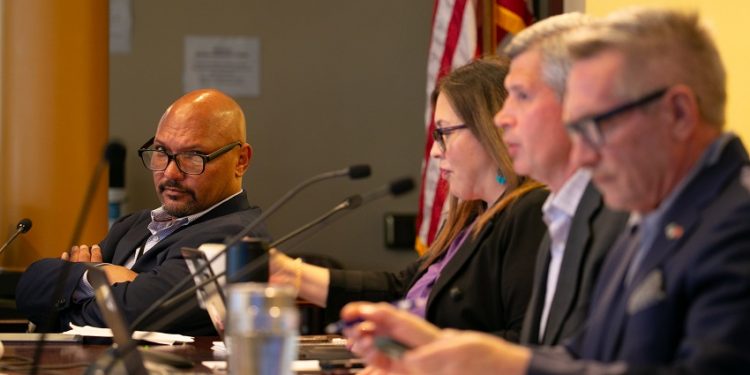Portland, OR – As Portland’s city councilors adjust to their newly restructured government, a proposal to expand their office staffing is stirring debate. The proposal, introduced by Council President Elana Pirtle-Guiney, seeks to allocate $4.6 million to fund additional staff positions for councilors and the mayor, addressing what many view as insufficient support for the growing workload in the revamped council structure.
Currently, each of the 12 city councilors is allocated only one staff member, a situation that Pirtle-Guiney believes is untenable for effective governance. The proposal would allow for one additional staffer in each councilor’s office and three additional staff members in the mayor’s office, bringing the mayor’s office total to eight. Additionally, the proposal would allocate $261,000 per councilor for office expenses, excluding staff salaries, for the remainder of the current fiscal year.
Pirtle-Guiney, who represents District 2, which includes much of Northeast Portland, emphasized the importance of having adequate staffing to serve the public. “We can’t do the work that Portlanders rightfully would like to see us do with only one staff person,” she said during an interview on OPB’s Think Out Loud. She further warned that failing to expand staff could erode public confidence in the council’s ability to function effectively.
This proposal has reignited discussions over staffing levels, which have been contentious for years. In the previous city council setup, commissioners had an average of seven staff members each, while the mayor’s office had 17 staffers. A transition team had recommended providing two staff members per councilor for the expanded 12-member council, but the previous council approved a budget with funding for only one staffer per councilor.
The timing of the proposal, however, is complicated by Portland’s tight financial situation. The city is facing a projected $27 million budget shortfall in the coming fiscal year due to declining property tax revenues and inflation. With other costs, including labor agreements with city unions, looming on the horizon, the city’s financial future remains uncertain.
The proposal suggests using funds from the City Administrator’s Office, which oversees essential programs like homeless shelter operations, trash removal, and neighborhood services. However, this has raised concerns among some councilors. Chief Financial Officer Jonas Biery recommended using one-time funds allocated for homeless services and trash cleanup to offset the costs of expanding councilor staff, but this suggestion has met with resistance.
Councilor Mitch Green, representing District 4, which covers parts of Portland’s westside and southeast neighborhoods, expressed frustration with the limited options presented by the proposed budget cuts. “We’re being offered a narrow set of choices without seeing the whole picture,” Green said, advocating for a more comprehensive cost-benefit analysis before making cuts to vital services.
Councilor Sameer Kanal shared Green’s concerns, suggesting that the city should consider trimming other areas, such as redundant contracting or contingency funds, rather than cutting critical homeless-related programs. Kanal and Green both tentatively support the proposal for additional staff but remain wary of the broader financial implications.
Not all councilors are on board with the plan. Former city councilor Steve Novick, who served a decade ago, expressed caution, recommending that the council wait until the annual budget process is further along before making decisions on additional staffing. “I want to give it some time and see if, in fact, we are all drowning and we just can’t do our jobs,” Novick stated, emphasizing the need to better understand the full scope of the city’s financial situation before committing to any new expenditures.
Councilor Candace Avalos, who also expressed concerns about the city’s financial outlook, has proposed a more measured alternative. She has suggested a $1.5 million budget package that would cover only the cost of additional staff positions, excluding funds for office expenses. Avalos stressed the importance of demonstrating fiscal responsibility, particularly as the city grapples with significant budget deficits and stalled labor negotiations. “It’s hard to ask for more employees when current city employees are struggling,” she noted.
As the council prepares for a crucial meeting Wednesday evening, it remains unclear whether the proposed expansion will pass, or if a compromise will emerge. Councilors are still working to finalize alternative funding proposals, and the outcome will likely hinge on the ongoing discussions about priorities and trade-offs in the face of the city’s looming financial challenges.














